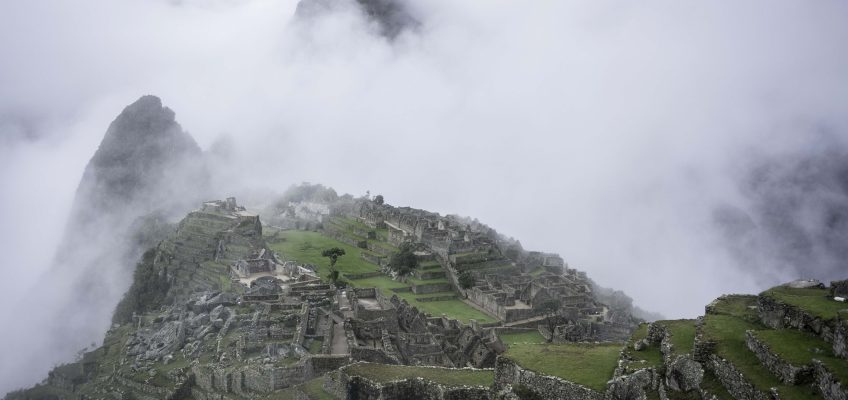The other morning, I stepped out the front door and realized that I was standing directly under the dividing line between clouds and clear sky. If I turned one way, I saw dense fog. If I turned the other way, I saw a bright summer day. It felt like I was at the center of the YinYang symbol.
I did Tai Chi under that line. The form had me pivoting in one direction and then the other, from fog to clarity and back to fog. I was very aware that one view was not more “right” than the other, though each evoked a slightly different set of emotions. And I could definitely see further when I turned toward the clear sky.
The experience made me think about shifting environments and how things that seem very clear under certain circumstances can blur when those circumstances change. A large part of Cooperative Wisdom is accepting this fluidity. When we have clarity, we work hard to establish best practices in our homes, our schools, our workplaces and our country. And we may succeed for a while, especially in environments that remain stable.
But the environment will change. By the time I had finished my Tai Chi form, there was fog all around me. Nothing was as clear as it had been when I started. This happens regularly in our lives. Something we thought settled and certain becomes hazy and obscure. Something that mattered seems in jeopardy. Under those circumstances, it’s easy to feel fearful.
The social virtues at the heart of Cooperative Wisdom push us in a different direction. We practice Proactive Compassion by taking a deep breath so we can assess and address potential harms to ourselves and to others. We engage Deep Discernment when we pay attention to what truly matters to everyone around us. We activate Intentional Imagination by actively exploring scenarios in which multiple values can be honored.
Then we take everything we know about what’s worked in the past and everything we’ve learned about how things have changed. And we practice Inclusive Integrity by forging new practices which are likely to create genuine cooperative benefits. For a while. Until the environment shifts again. And new vulnerabilities become apparent.
The repetitive nature of this process can wear people down. Sometimes it even makes people angry because it seems as though their efforts have been in vain. If there’s confusion and breakdown in a cooperative system that I helped to create—a family, a school, a business, a community organization, or even a political party—it’s tempting to blame others and withdraw from the hard work of trying to create benefits that are genuinely mutual.
That’s when we most need Creative Courage. Even when things are foggy, we have to persist in our efforts to cooperate. Clear skies may make the path to mutual benefits more obvious. But dynamic systems include fog—and rain and hail and snow. It makes no sense to blame other people for inclement weather. It makes just as little sense to blame them when changes in social environments create disruption or even adversity.
My Tai Chi teachers regularly remind my class that, regardless of how we feel when we begin the form, we will get the most benefit from our practice if we focus on essential principles including continuous, flowing movement. Cooperative Wisdom is rooted in the same understanding that environments are always in flux. When things are foggy and unsettled, we may move more tentatively because we can’t see as far ahead. But we need the wisdom to stay in motion, working continuously to create and strengthen cooperation and the benefits that are possible only when we pull together.


Leave a Reply